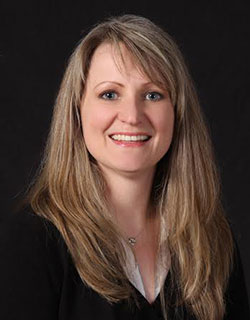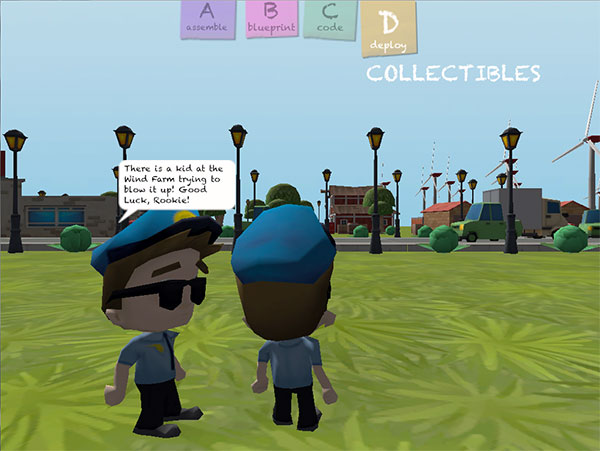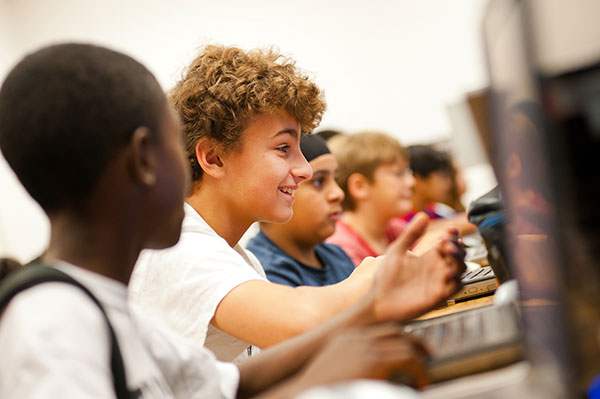NSF Grant to Study Science Learning Through Game Creation Among Students With Learning Disabilities
June 8, 2015

Sheri Berkeley
Could creating video games — not just playing them — help middle school students learn science concepts?
Two George Mason University professors aim to find out through a new $813,329 grant from the National Science Foundation.
Sheri Berkeley, an associate professor of special education, and Len Annetta, a professor of science education, are co-principal investigators on a three-year, cross-disciplinary project that began in the fall. Both are part of the College of Education and Human Development at Mason.
The project will focus on middle school students with learning disabilities. It will investigate whether students involved in a complex, project-based activity — the creation of a video game — are better able to "self regulate" their learning of science concepts.

Len Annetta
"The end result, the video game itself, is not what we're really looking at," says Berkeley. "The project focuses on the learning process. The findings will increase our foundational knowledge of how to best foster self-regulation of learning for students with learning disabilities, which is critical to their ongoing success in science and school in general."
Many researchers are intrigued by the concept of self-regulation in education. Self-regulated learners are successful because they control their own learning — they are aware of their academic strengths and weaknesses, are internally motivated to learn, and have a repertoire of strategies for tackling their academic challenges.
For this project, middle school students will be taught an important science topic: the advantages and disadvantages of renewable energy sources. The students will then create their own "serious educational games" to teach the concept to others.

"There is a kid at the wind farm trying to blow it up! Good luck, Rookie!" Middle school students use a special gaming platform to create a scenario around a science concept they've learned. The students end up engaging deeply in the science topic as they figure out how the game should unfold.
"Our goal is to look at whether adding a creative, hands-on, and technology-based facet such as computer game design can motivate students with learning disabilities to persist in their effort to learn science content," says Annetta, who was featured in a Nifty Fifty Podcast on Serious Games for the USA Science and Engineering Festival in April.
The research of Berkeley and Annetta has wide resonance. There are approximately 2.5 million school-age children with learning disabilities in the nation's schools. There is also a pressing need to ensure that students graduate high school as science literate individuals who can contribute to society, pursue a college education, and advance in STEM (science, technology, engineering, and mathematics) careers.

Dr. Sheri Berkeley and Dr. Len Annetta are co-principal investigators on a NSF grant-funded project to research how students with learning disabilities self-regulate their learning of science concepts while creating computer games. (Technology camp photo by Donnie Biggs used with permission, courtesy of Fairfax County Public Schools).
The NSF grant is called "Self-Regulation of Science Learning in the Context of Educational Game Creation: A Study of Middle School Students with Learning Disabilities."
Other faculty members involved in the research include Stacia Stribling, Anastasia Kitsantas, and Peggy King-Sears. Two doctoral students are providing research assistance: Anna Menditto and Marina Shapiro. The participation of two additional graduate students, Leigh Ann Kurz and Mary Rehberg, is funded through scholarships from the Helen A. Kellar Institute for Human disAbilities.
This article was written by Pam McKeta.
For additional information:
- CEHD Communications: cehdnews@gmu.edu
- Graduate School of Education: gse.gmu.edu
About the college:
George Mason University's College of Education and Human Development (CEHD) includes two schools: the Graduate School of Education, one of the most comprehensive education schools in Virginia, and the School of Recreation, Health, and Tourism. CEHD offers a full range of courses, certificates, and degree programs on campus, online, and on site to more than 4,000 students each year. CEHD is fully accredited by NCATE, and all licensure programs are approved by the Virginia Department of Education. George Mason University, located just outside of Washington, D.C., is Virginia's largest public research university.
Follow CEHD on Facebook at www.facebook.com/MasonCEHD or Twitter at @MasonCEHD.
